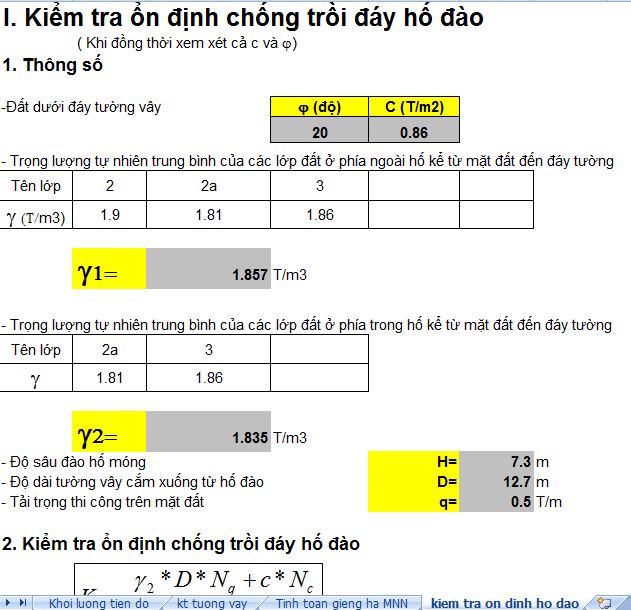Topic it's been 4 months where's my tax refund: Don\'t worry, if it\'s been 4 months and you\'re wondering where your tax refund is, you\'re not alone. While it can feel frustrating, keep in mind that the IRS processes millions of returns each year. The best way to get updated and accurate information on your refund is by checking the \"Where\'s My Refund?\" tool on the IRS website. Remember, patience is key, and soon enough you\'ll have your hard-earned money in your hands.
Table of Content
- It\'s been 4 months, where can I check the status of my tax refund?
- How long does it typically take for the IRS to process a tax refund?
- What should I do if it has been 4 months and I have not received my tax refund?
- YOUTUBE: Refund Status: Tax Return Still Being Processed | What to Do if it\'s More Than 21 Days?
- Is there a way to track the status of my tax refund online?
- Are there any common reasons why a tax refund might be delayed?
- Can I contact the IRS to inquire about the status of my tax refund?
- What information do I need to provide when contacting the IRS about my tax refund?
- Is it possible that there was an error or issue with my tax return that is causing the delay in receiving my refund?
- Are there any specific circumstances that could result in a longer processing time for tax refunds?
- What steps can I take to prevent future delays in receiving my tax refund?
It\'s been 4 months, where can I check the status of my tax refund?
If it has been 4 months since you filed your tax return and you have not received your refund yet, there are a few steps you can take to check the status:
1. Visit the IRS website: Go to the official website of the Internal Revenue Service (IRS) at www.irs.gov.
2. Click on \"Where\'s My Refund?\": On the IRS website, locate the \"Refunds\" tab and click on it. From the drop-down menu, select \"Where\'s My Refund?\"
3. Provide necessary information: You will be prompted to enter certain information such as your Social Security Number (SSN), filing status, and the exact refund amount you are expecting. Make sure to enter the information accurately.
4. Click on \"Check My Refund Status\" or a similar option: Once you have entered the required information, click on the appropriate button to check the status of your refund.
5. Review the results: The website will display the status of your refund. It may inform you if it is still being processed, has been sent, or if there is any issue that needs attention.
6. Contact the IRS if necessary: If the website does not provide any useful information or if you have additional questions, you can contact the IRS directly. The IRS has a dedicated phone line for refund inquiries, which you can find on their website.
It\'s important to note that the IRS provides guidelines on how long it generally takes to process tax returns and issue refunds. Usually, it shouldn\'t take more than 21 days after the return has been accepted by the IRS. However, during peak tax season or due to other factors, processing times can vary. So, while waiting for your refund, it can be helpful to regularly check the status using the steps mentioned above or contacting the IRS if necessary.
READ MORE:
How long does it typically take for the IRS to process a tax refund?
Typically, it takes the IRS about 21 days to process a tax refund after they receive your tax return. However, this timeline can vary depending on several factors such as the accuracy of your return, the method you used to file (electronically or by mail), and any errors or issues that may need to be resolved. Here is a step-by-step breakdown of the process:
1. Submit your tax return: You need to file your tax return either electronically or by mail. Electronically filed returns are generally processed faster than paper returns.
2. IRS acknowledgment: Once the IRS receives your tax return, they will send an acknowledgment confirming that they have received it. If you filed electronically, this confirmation may be available immediately, but for paper returns, it could take a few weeks.
3. Processing: Once your return is acknowledged, it will go into the processing stage. During this time, the IRS will verify the information on your return, check for errors, and ensure that all necessary forms and schedules are included.
4. Refund approved: If there are no issues with your return, the IRS will approve your refund. This means they have finished processing your return and have calculated the amount you are owed.
5. Refund sent: After approval, the IRS will send your refund either through direct deposit or by mail as a paper check. If you chose direct deposit, the money will be deposited into your bank account. If you opted for a paper check, it will be mailed to the address you provided on your tax return.
It\'s important to note that the 21-day timeline is not a guarantee and can vary. Some tax returns may require extra review or may be selected for an audit, which can further delay the processing time. If it has been longer than 21 days since the IRS received your return and you haven\'t received your refund, you can check the status of your refund using the \"Where\'s My Refund?\" tool on the IRS website or by calling their refund hotline at 1-800-829-1954.
What should I do if it has been 4 months and I have not received my tax refund?
If it has been 4 months since you filed your tax return and you still haven\'t received your refund, there are a few steps you can take to investigate the issue:
1. Check the status of your refund: Visit the IRS website and go to the \"Where\'s My Refund?\" tool. Enter your social security number, filing status, and the exact amount of your expected refund. This tool will provide you with information about the status of your refund. It\'s possible that the IRS is still processing your return, and this tool will give you an estimated date of when you can expect to receive your refund.
2. Contact the IRS: If the \"Where\'s My Refund?\" tool doesn\'t provide enough information or if it indicates that your refund should have already been issued, you can contact the IRS directly. You can reach them at 1-800-829-1040. Be prepared to provide your social security number, filing status, and the exact amount of your expected refund.
3. Verify your mailing address: It\'s essential to make sure that the IRS has the correct mailing address on file. If your address has changed since you filed your return, it\'s possible that your refund was sent to the wrong location. You can update your address with the IRS by filling out Form 8822, Change of Address.
4. Verify your bank account: If you opted for a direct deposit refund, double-check that the IRS has the correct bank account information. Sometimes, errors in bank account numbers can lead to delays or unsuccessful deposits. You can check this information by calling the IRS or by reviewing the information you provided on your tax return.
5. Consider contacting a tax professional: If you\'ve followed the steps above and still haven\'t received your refund, it may be beneficial to consult with a tax professional. They can help you navigate the situation, communicate with the IRS on your behalf, and provide further guidance based on your specific circumstances.
It\'s important to remain patient during this process as it can take some time for the IRS to process tax returns and issue refunds, especially during peak tax season.
Refund Status: Tax Return Still Being Processed | What to Do if it\'s More Than 21 Days?
Check: Learn the essential tips and tricks to effectively manage your finances with our comprehensive video on how to use checks. Explore the various types of checks, understand the importance of check security features, and gain valuable insights to avoid costly mistakes. This video is a must-watch for anyone interested in maximizing their check usage.
Where\'s My IRS Tax Refund Check Today?
2023: Get a sneak peek into the exciting trends and advancements that await us in the year
Is there a way to track the status of my tax refund online?
Yes, there is a way to track the status of your tax refund online. The IRS provides a tool called \"Where\'s My Refund?\" on their website that allows taxpayers to check the status of their refund.
Here are the steps to track your tax refund online:
1. Go to the IRS website (www.irs.gov) on your computer or mobile device.
2. Look for the \"Refunds\" tab or section on the website\'s homepage.
3. Click on the \"Where\'s My Refund?\" link. This will take you to the refund tracking tool.
4. On the \"Where\'s My Refund?\" page, you will be prompted to enter your Social Security Number (or Individual Taxpayer Identification Number), your filing status, and the exact amount of your expected refund.
5. Once you have entered the required information, click on the \"Submit\" or \"Check Status\" button.
6. The tool will then display the status of your tax refund, whether it has been received, processed, or scheduled for delivery.
It\'s important to note that the tool is updated once every 24 hours, usually overnight. So if you have recently filed your tax return, it may take a few days for the system to update with your refund status.
If the tool shows that your refund is still being processed after 21 days, or if you encounter any issues or errors, the IRS advises taxpayers to contact them directly for further assistance.
Are there any common reasons why a tax refund might be delayed?
Yes, there are several common reasons why a tax refund might be delayed. Here are a few possible reasons:
1. Errors on the tax return: Any errors or inconsistencies on your tax return, such as incorrect information or missing documentation, can result in a delay in processing your refund. It is important to double-check your return for accuracy before submitting it.
2. Missing or incomplete information: If there is missing or incomplete information on your tax return, the IRS may need to contact you for clarification or additional documentation. This can lead to delays in processing your refund while they wait for the necessary information.
3. Refund fraud detection: In order to combat refund fraud and identity theft, the IRS has implemented strict security measures. Your return may be flagged for additional review if there are any suspicious or unusual activities associated with it. While this is done to protect taxpayers, it can cause delays in receiving your refund.
4. Prior debts or obligations: If you owe federal or state taxes, child support payments, or certain other debts, your refund may be offset or intercepted to satisfy these obligations. The offset process can delay your refund until the applicable debts are paid off.
5. IRS backlog and processing delays: Sometimes, delays can simply be due to the IRS having a backlog of returns to process. This can occur during busy tax seasons or when there are any major changes to tax laws or forms. In such cases, it may take longer than usual for your refund to be processed and issued.
If you are concerned about the status of your tax refund, it is best to check the IRS website\'s \"Where\'s My Refund?\" tool. All you need is your Social Security number, filing status, and the exact refund amount you are expecting. This tool will provide you with the most up-to-date information on the status of your refund.

_HOOK_
Can I contact the IRS to inquire about the status of my tax refund?
Yes, you can contact the IRS to inquire about the status of your tax refund. Here\'s how you can do it:
1. Gather your information: Before contacting the IRS, make sure you have your tax return information readily available. This includes your Social Security number, filing status, and the exact amount of your expected refund.
2. Use the IRS \"Where\'s My Refund?\" tool: The first step is to use the IRS\'s online tool called \"Where\'s My Refund?\" You can access this tool on the official IRS website (www.irs.gov/refunds). Enter your Social Security number, filing status, and the exact refund amount. The tool will provide you with the current status of your refund, whether it\'s still being processed or if there is any issue.
3. Check the timing: If it has been longer than 21 days since the IRS received your return, and the \"Where\'s My Refund?\" tool still does not show any progress, you can proceed with contacting the IRS directly.
4. Call the IRS: To contact the IRS, dial their toll-free phone number: 1-800-829-1040. Make sure you have enough time to wait on hold as the IRS lines can be busy during tax season. Have your tax return information handy, as they may ask you for verification purposes.
5. Speak with a representative: Once connected, explain that you are calling to inquire about the status of your tax refund. The representative will ask for your personal identifying information, such as your Social Security number and filing status, to access your account. They will then provide you with information about the status of your refund. If there are any issues, they may be able to assist you further.
Remember to maintain a polite and patient attitude when dealing with the IRS representatives. They are there to help, and being positive and respectful can go a long way in getting the information you need.
What information do I need to provide when contacting the IRS about my tax refund?
When contacting the IRS about your tax refund, it is important to have certain information ready to provide. Here is a step-by-step guide on what information you should have when contacting the IRS:
1. Gather your documents: Before contacting the IRS, gather all relevant documents related to your tax return. This may include a copy of your tax return, any correspondence from the IRS, and supporting documents or records.
2. Personal Information: Be prepared to provide your full name, social security number, and mailing address. This information will help the IRS locate your tax return and provide you with accurate information.
3. Refund Information: Make sure you have your refund amount and the tax year for which you are seeking a refund. This information will help the IRS identify the specific refund you are inquiring about.
4. Contact Method: Determine the method you prefer to contact the IRS. You can choose to call them directly, send a written inquiry by mail, or use the online resources available on the IRS website.
5. Call the IRS: If you choose to call the IRS, be prepared for potentially long wait times and have a pen and paper ready to take notes. Ensure you have a calm and patient attitude during the call.
6. Online Resources: Consider using the IRS website\'s \"Where\'s My Refund?\" tool (https://www.irs.gov/refunds) to check the status of your refund before contacting the IRS. This tool may provide you with the most up-to-date information on your refund status.
7. Be polite and concise: When communicating with the IRS, remember to be polite and concise in providing your information and asking your questions. Stick to the facts and avoid unnecessary details or personal opinions.
8. Take notes: During the conversation or correspondence, take thorough notes of the date, time, and name of the IRS representative you speak to, as well as any instructions or information they provide. This will be helpful if you need to follow up later or refer back to the conversation.
Remember, when contacting the IRS about your tax refund, patience and understanding are important. Processing times can vary, and it may take some time to receive a resolution.

Is it possible that there was an error or issue with my tax return that is causing the delay in receiving my refund?
Yes, it is possible that there could be an error or issue with your tax return that is causing a delay in receiving your refund. There are several reasons why this could occur. Here are a few steps you can take to determine if there is an issue with your tax return:
1. Check the IRS website: First, visit the IRS website and use the \"Where\'s My Refund?\" tool to check the status of your refund. Enter your Social Security number, filing status, and the exact amount of your expected refund. This tool will provide you with the most up-to-date information on the status of your refund.
2. Review your tax return: If you have access to your tax return, review it carefully to ensure that all the information you provided is accurate and complete. Common errors that can cause delays include incorrect Social Security numbers, math errors, missing signatures, or missing or incorrect bank account information.
3. Contact the IRS: If you are unable to determine the status or the reason for the delay using the \"Where\'s My Refund?\" tool, you can contact the IRS directly. The IRS has a dedicated phone line for refund inquiries at 1-800-829-1040. Be prepared to provide your Social Security number, filing status, and the exact amount of your expected refund when you call.
4. Provide any requested information: If the IRS contacts you requesting additional information or documentation to process your return, make sure to submit it as soon as possible. Failure to provide the requested information in a timely manner could further delay the processing of your refund.
Remember, it is not uncommon for refunds to take longer than expected, especially during peak tax season or if there are issues with your return. However, by following these steps and actively addressing any errors or issues, you can help expedite the refund process.
Tax Refund 2023: Tax Return Still Being Processed?
Our video takes you on a journey through the most anticipated technological innovations, fashion trends, and cultural shifts. Stay ahead of the curve and be prepared for what the future holds by watching this captivating glimpse into 2023!
No Tax Refund from IRS for 2020 or 2021 Tax Years - What to Do After 6 Months?
Years: Dive into the fascinating history of humanity like never before with our captivating video on significant years throughout history. From world-changing events and influential figures to cultural revolutions, this video offers an immersive experience that will leave you with a new appreciation for the course of human existence. Embark on this educational journey through the years and expand your knowledge in an engaging and memorable way.
Are there any specific circumstances that could result in a longer processing time for tax refunds?
Yes, there can be specific circumstances that may result in a longer processing time for tax refunds. Here are some factors that can contribute to delays:
1. Errors or Incomplete Information: If there are errors on your tax return or if you have left out any required information, the IRS may need to manually review your return, which can prolong the processing time.
2. Additional Review Required: In some cases, the IRS may select certain tax returns for further review or audit. This can happen randomly or if there are specific red flags on your return, such as large deductions or inconsistent information. Additional reviews can significantly delay the processing of your refund.
3. Earned Income Tax Credit (EITC) or Additional Child Tax Credit (ACTC): If you have claimed either the EITC or ACTC on your tax return, the IRS is required by law to hold your refund until mid-February to ensure that the credits are properly processed and to prevent fraudulent claims. This can result in a longer processing time for refunds that include these credits.
4. Identity Theft or Fraud Concerns: If the IRS suspects any potential identity theft or fraud on your tax return, they may need to verify your identity and investigate the issue. This can lead to longer processing times for your refund.
5. Incomplete Prior-Year Returns: If you have any outstanding prior-year tax returns that are incomplete or need to be amended, it can delay the processing of your current-year refund.
6. Paper Filing: If you filed your tax return on paper rather than electronically, it generally takes longer for the IRS to process the return and issue a refund. Paper returns require manual processing, which can result in longer processing times compared to e-filed returns.
It is important to note that the IRS provides tools like \"Where\'s My Refund?\" on their website where you can check the status of your refund. If it has been significantly longer than the expected processing time, you can contact the IRS directly for further assistance.

READ MORE:
What steps can I take to prevent future delays in receiving my tax refund?
To prevent future delays in receiving your tax refund, you can follow these steps:
1. File your tax return electronically: Filing your tax return electronically is generally faster and more accurate than paper filing. This reduces the chances of errors and allows the IRS to process your return more quickly.
2. Double-check your return for accuracy: Make sure all information on your tax return, such as your Social Security number, income, and deductions, is accurate and up to date. Errors can lead to delays or even an audit, so it\'s important to review your return carefully before submitting it.
3. Use direct deposit for your refund: Opt for direct deposit instead of receiving a paper check. This allows the IRS to deposit your refund directly into your bank account, which is faster and safer than waiting for a check in the mail.
4. Avoid common mistakes: Common mistakes on tax returns, such as forgetting to sign your return, using incorrect tax forms, or missing important attachments, can cause processing delays. Be sure to read the instructions carefully and follow all requirements to avoid these mistakes.
5. File on time: Filing your tax return by the deadline (usually April 15th) ensures that your return will be processed promptly. Late filing can result in penalties and delays in receiving your refund.
6. Monitor your refund status: Check the IRS \"Where\'s My Refund?\" tool regularly to track the status of your refund. This online tool provides updates on the processing of your return and estimated refund date. If there are any issues or delays, it will usually alert you.
7. Avoid unnecessary amendments: Once you\'ve filed your tax return, try to avoid making unnecessary amendments or changes unless absolutely necessary. Unnecessary amendments can slow down the processing of your return.
By following these steps, you can minimize the chances of experiencing delays in receiving your tax refund in the future. However, keep in mind that there may still be factors outside of your control that can lead to delays, such as changes in tax laws or IRS workload.
_HOOK_















